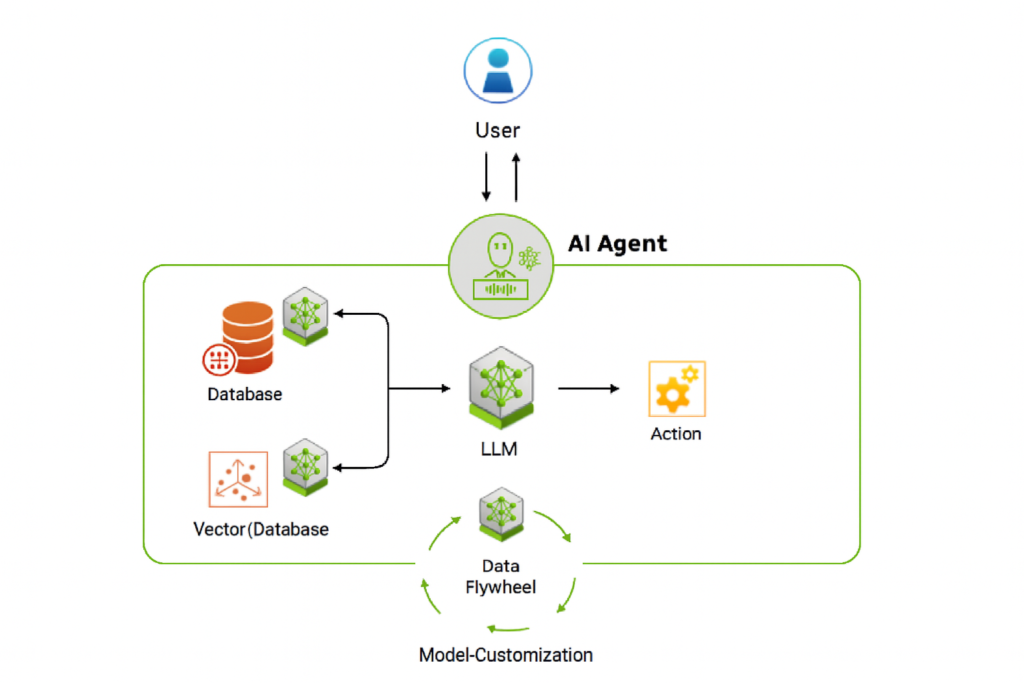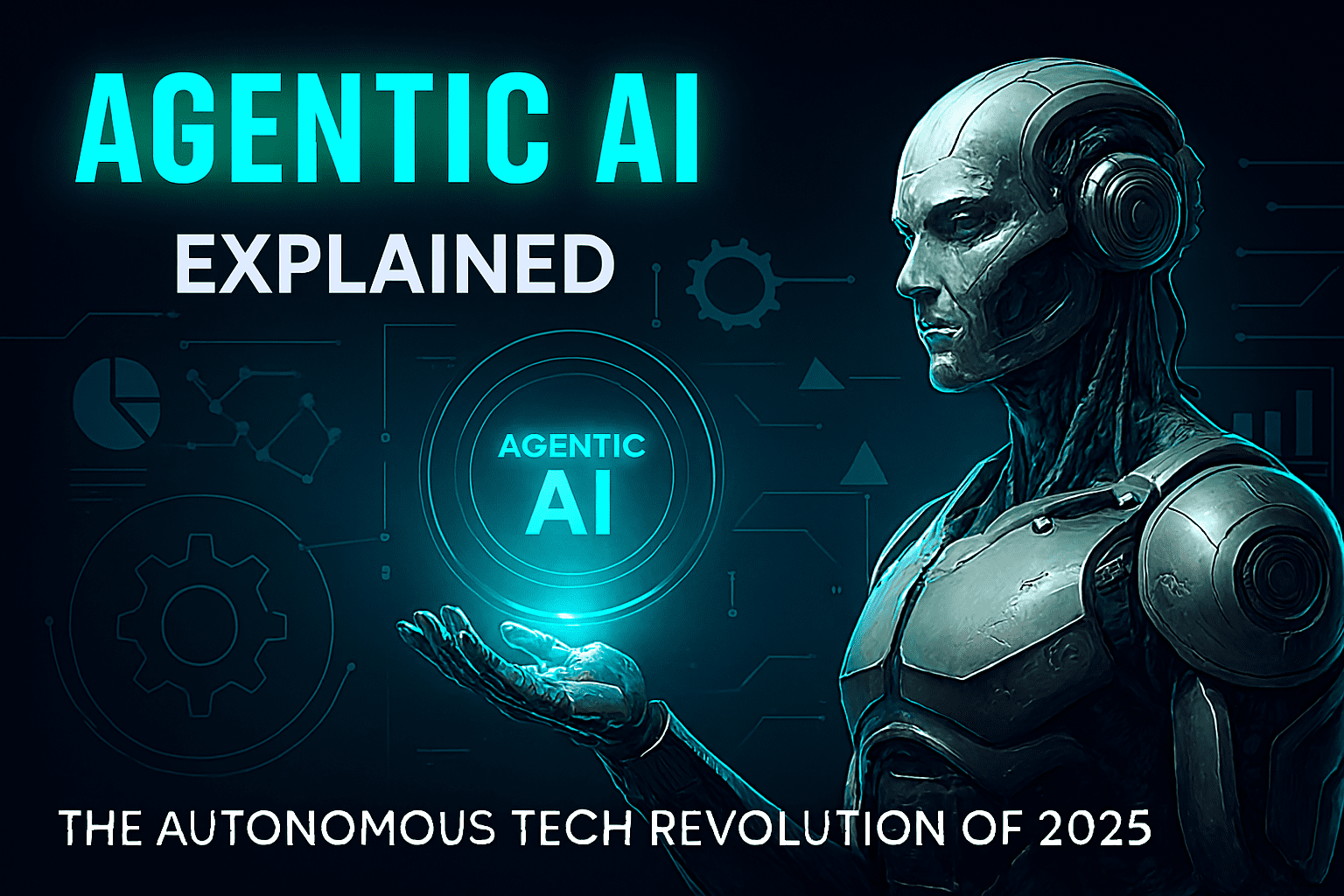Artificial intelligence is evolving — and the next leap is here: Agentic AI. Unlike traditional chatbots that respond to single queries, agentic AI systems can perceive, reason, act, and learn — autonomously solving complex, multi-step problems across industries.
Whether it’s customer service, healthcare, software engineering, or video analytics, agentic AI is transforming how businesses operate, how decisions are made, and how productivity scales.
What Is Agentic AI?
Agentic AI refers to intelligent systems that go beyond passive responses. These agents:
- Perceive data from sensors, databases, and digital interfaces
- Reason using large language models and specialized tools
- Act by executing tasks via APIs and external software
- Learn through feedback loops, improving performance over time
For example, a customer service AI agent could check your balance, recommend payment options, and complete the transaction — all without human intervention.
How Agentic AI Works?
Perceive: Gathers data from multiple sources and extracts meaningful insights
Reason: Uses LLMs and techniques like Retrieval-Augmented Generation (RAG) to generate solutions
Act: Executes tasks via APIs, with built-in guardrails for safety and accuracy
Learn: Improves through a “data flywheel” — feeding interaction data back into the system
This cycle allows AI agents to become smarter, faster, and more effective with every interaction.

Fueling Agentic AI With Enterprise Data
- Access proprietary databases
- Retrieve relevant information instantly
- Enhance generative AI models
- Deliver personalized, accurate outputs
Platforms like NVIDIA NeMo and NVIDIA Blueprints offer tools, sample code, and microservices to help businesses build responsive agentic AI applications.
Agentic AI in Action — Real-World Use Cases
Customer Service
AI agents automate routine queries, reduce response times, and boost satisfaction. Some companies are deploying digital humans — lifelike AI avatars that represent their brand and handle customer interactions in real time.
Content Creation
Marketers save hours per campaign using generative AI agents to create personalized content. This frees up time for strategy and innovation while improving engagement.
Software Engineering
Agentic AI automates repetitive coding tasks, allowing developers to focus on complex challenges. By 2030, AI could handle up to 30% of work hours in tech.
Healthcare
octors use AI agents to analyze patient data, automate admin tasks, and improve care decisions. These agents also offer 24/7 support for medication guidance, appointment reminders, and treatment adherence.
Video Analytics
Enterprises and public sector teams use AI agents to analyze live and archived footage, detect anomalies, generate reports, and improve quality control. These agents interact via natural language and perform tasks like video search and summarization.
Getting Started With Agentic AI
Agentic AI isn’t just a buzzword — it’s the future of intelligent automation. To build your own AI agents:
- Explore NVIDIA Blueprints for sample apps, reference code, and documentation
- Use platforms like NVIDIA NeMo to develop custom generative AI tools
- Partner with experts like Accenture to deploy enterprise-grade solutions
Also read: Samsung One UI 8 Update Leaks: Exciting Features Expected in Upcoming Release









